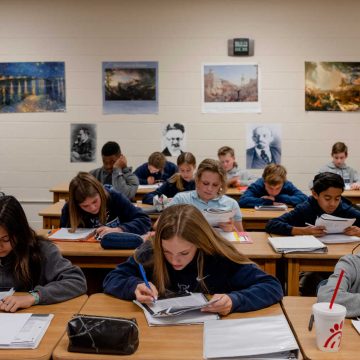Some college leaders aren’t hearing their students and also the parents of individuals students. This means that too busy, uninterested or know that they’ll nothing like whatever they hear. All of individuals reasons is really a obvious indication that students have not been well offered.
Each time a college is reluctant to hear student concerns, needs and opinions, the amount of student satisfaction will probably be poor.
The very best college leaders:
1. Request Input, Ideas And Suggestions – Do your college leaders rapidly dismiss the issues, comments, ideas and suggestions which come from faculty, staff, managers, alumni, students, parents yet others within the college community? When they do, you ought to be concerned.
2. Survey Students – Market research that enables participants to stay anonymous can be quite effective and shows students that college leaders are worried regarding their wants, needs, expectations and ideas. Students are more likely to tell the truth when they already know there won’t be any repercussions.
Some college leaders depend on national surveys and statistics to aid their decisions and actions. Couple of leaders appear prepared to survey their very own students. If they would like to understand what their very own students think, college executives must ask.
3. Hold Feedback Sessions – When colleges are curious about serving their students, they find methods to have face-to-face conferences with students regularly. Group and Individual Feedback Conferences, Breakfasts, Lunches, Panels and Student Participation in Board Conferences are great methods for college leaders to discover student observations, needs and concerns.
4. Attend Occasions – Wise leaders also attend sports occasions, theatrical occasions, concerts, lectures, classroom discussions or Student Government conferences to place themselves capable of hear what students are planning and experiencing.
5. Provide A Complaint Mechanism – Colleges that are writing about the concerns and problems faced by students must have a non-threatening complaint mechanism. Students need to know their college leaders will listen after which act.
6. Survey Alumni – Recent graduates are an excellent source of information which most colleges ignore. Once students have graduated, they can voice their opinions without anxiety about retribution.
7. Come With An Open Door Policy – When college executives open their doorways, answer their phones and react to e-mail messages and texts from students, they set happens to understand what concerns their students.
All of us have to be heard. Some leaders avoid hearing student concerns by not answering their phones and never answering voicemail or e-mail messages. They might also send students to another person or spend excessive time from their desks, in conferences, traveling or becoming unavailable.
When colleges neglect to encourage upward communication, upset students will feel disrespected, powerless and trivial Damaged communication mechanisms are only able to offer proof to students that college leaders don’t worry about them. A whole lot worse, some college leaders don’t react well to student suggestions or complaints and be annoyed when students bring concerns for their attention. They voice their displeasure through getting irritated, loud and angry.
Regrettably, when students feel uncomfortable, intimidated or threatened, they’re not going to reveal the data that college executives need. Mutual trust are only able to develop during a period of time, when students observe that college leaders show concern for his or her difficulties and then try to do something about the data they’ve received. The very best leaders value their students and seek their input. Honestly, any college leader who’s truly worried about student opinions won’t ever remain too busy for too lengthy.

















